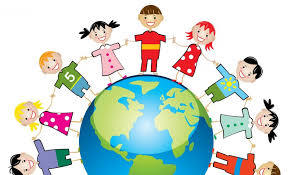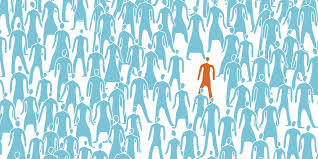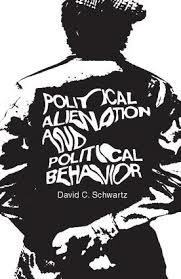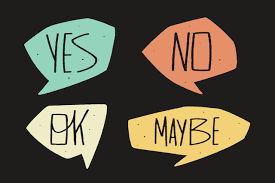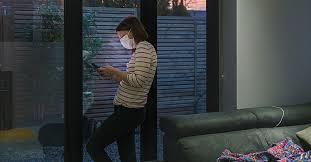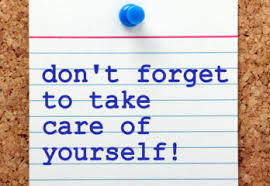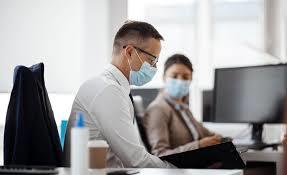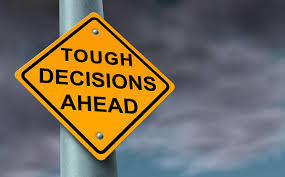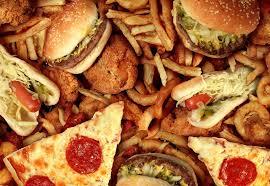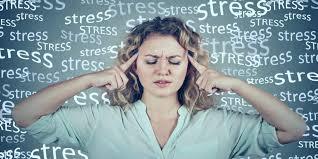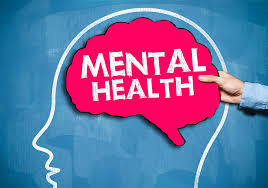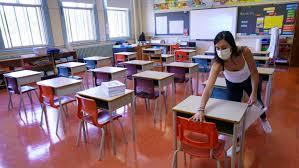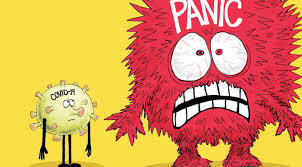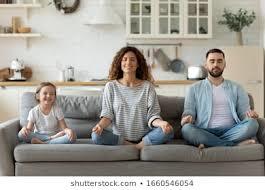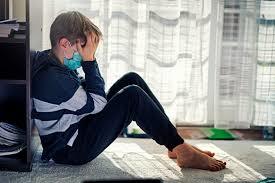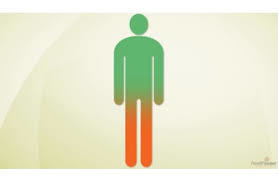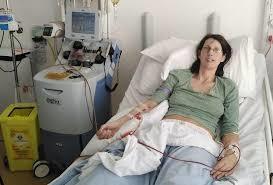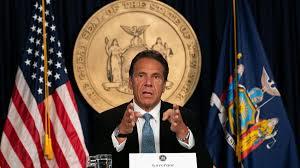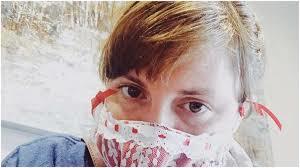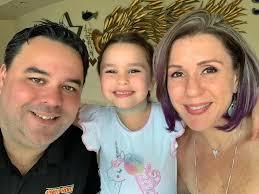Marcia Sirota's Blog, page 16
October 13, 2020
Are the Politics of Division Driving You Crazy?

Political polarization is bad for our mental health:
Last year, Psychology Today published an article about mental health and politics. The article, by Susan McQuillan, discussed the way that divisive politics are taking a toll on the mental health of Americans.
The Psychology Today article discussed a study done by the University of Nebraska-Lincoln. It turns out that the politics of division is so destructive that it has cost many Americans their friendships, created conflicts within families and in the workplace, and filled Americans with “anger, frustration,…guilt and regret.”
In fact, more than 25 percent of the survey respondents agreed that politics caused them stress and depression, while more than 15 percent of respondents said that politics made them lose sleep and created conflict in their extended families.
As the US presidential elections are rapidly approaching, many people are talking about the how the country is under extreme stress due to the ongoing Covid-19 pandemic but almost no-one is talking about the stress of living in a country that’s so politically divided.
Human beings thrive within a harmonious community:
To me, the study’s findings are not surprising. Human beings are communal animals. In order to have a strong sense of security and a good quality of life it’s necessary that we feel a deep sense of connection and belonging within our community. Political divisiveness undermines the experience of a harmonious community and leads to insecurity, fear, anger and stress.
We humans have two opposing inner survival mechanisms: love, compassion and altruism on the one hand and fear, anger and hatred on the other. Both of these drives are important to our survival.
Love, compassion and altruism enable us to create strong families and communities, lift one-another up and support each-other when times get tough. Fear, anger and hatred are important in recognizing who might be trying to hurt us and empowering us to defend ourselves and our loved ones from harm.
Both drives must be in balance. We don’t want to be so blindly generous that we allow ourselves to be exploited, or so naïve as to get repeatedly taken advantage of. On the other hand, we don’t want to be so fearful of others that we become insular, intolerant or antisocial.
Being too nice makes us resentful, but being paranoid and hostile makes us utterly miserable.
The politics of division creates an automatic “us-them” scenario in which anyone who appears different or who holds alternative opinions is immediately considered the “other,” and therefore “bad.”
“Othering” makes us unhappy:
Psychologically, this type of “othering” is meant to protect us and keep us “safe” from the “bad people” who might try to hurt us. The problem is that the vast majority of people who think or live differently than we do are no better or worse than we are and certainly no danger to anyone.
Interestingly, the most dangerous people within our communities are those who are the most prone to engage in “othering.” It’s these individuals who resort to violence to promote their extreme ideology, and this is another reason why political polarization must be strongly discouraged.
Living in a country with extreme polarization of political views is stressful for everyone. One would think that it would be worse for those people whose party is not in power but that’s not always true. Everyone is more stressed when a county is so divided.
For everyone involved, the act of “othering” causes distress. When we place people into “us” and “them” camps, the intention is to boost our sense of togetherness within our smaller community, but what it actually does is boost our stress.
To be sure, the people being excluded feel hugely stressed, but the people doing the excluding feel stressed as well – they just misunderstand the reasons why they’re feeling so unhappy.
Those doing the “othering” believe – quite wrongly – that they’re unhappy because they live in proximity to the “others.” What they don’t realize is that they’re actually unhappy because they’ve created false divisions among themselves and it’s these divisions that are hurting them.
The more divisive the politics of a country are, the more stressful and distressing it is for its citizens.
The Conways — a microcosm of political polarization:
An interesting – and tragic – example is that of Claudia Conway. She is the 16 year-old daughter of George and Kelly-Anne Conway. Both parents are Republicans but they share different views.
Kelly-Anne was until recently an adviser to president Trump, while George vehemently opposes Trump and started the Lincoln Project whose sole purpose has been to defeat him.
Claudia, caught in the middle between two diametrically opposed parents, had threatened to seek emancipation a few months ago, prompting Kelly-Anne to resign as a White House adviser and George to step down from his role with the Lincoln Project. Both parents realized, at least for the moment, the emotional toll their political divisiveness was taking on their young daughter.
Political alienation is toxic for everyone:
Alienation is bad for our mental health. Political alienation is a toxic experience for everyone. Without an overarching sense of unity, there is no political – or emotional – stability. Political divisiveness brings with it anxiety, alienation and misery.
It’s deeply distressing – and destabilizing – to go through life with the thought that so many people in our community are “the other,” even for those whose party is in power. Those who adhere to extremist political views have no idea how unhappy –and unhealthy – this is making them.
We Canadians aren’t spared, either, from the fractious politics in our neighbors to the south. Many Canadians live in the US; many Americans live in Canada, and aside from that, we can’t underestimate the impact of US politics on the Canadian psyche.
Community harmony is health-promoting:
The way we view our community has an enormous impact on our emotional well-being. When we feel a strong sense of oneness within our country, our brains release more of the feel-good neurotransmitters, oxytocin, dopamine and serotonin. These brain chemicals are known to be health promoting and longevity-boosting.
On the other hand, when we feel a strong sense of division within our country, we release the stress hormones cortisol and adrenalin. According to a study by the Mayo Clinic, an excess of these brain chemicals over time can cause anxiety, depression, heart disease and premature aging, and may even lead to early-onset dementia.
More political divisiveness causes more stress and more stress causes unhappiness, illness, and possibly early death.

In these difficult times, we need more unity, not divisiveness:
We should not underestimate the detrimental effect of political divisiveness on our mental health. Whether we’re in the privileged group or the oppressed group, the “us” or the “them,” these divisions weigh heavily upon all of us.
Political polarization is stressful and leads to mental health problems for everyone. In these already challenging times, what we need more than anything is healing. Let’s do our best to bring back a sense of unity and stability in the United States, and anywhere else that it’s needed.
Sign up here for my free monthly wellness newsletter. I’m doing a special every-two-week series on Moving into Autumn with Good Self-Care, where you’ll learn simple tips for taking the best care of yourself and your loved ones this fall season.
And tune in to my ongoing YouTube video series on Coping With Covid.
October 2, 2020
Anxious About Holiday Invitations? Here’s How to Say “No” With Confidence
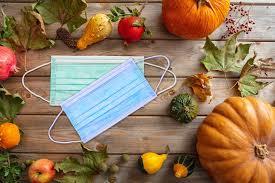
When the holiday season meets the second wave of Covid-19:
Canadian Thanksgiving is just around the corner and American Thanksgiving isn’t that far off, either. It’s unfortunate that just as the holiday season is upon us, the pandemic has entered a second wave. Just as we were starting to relax and the restrictions were easing off, it looks like they’re going to be tightening up again.
Some people are taking the public health guidelines very seriously and others appear to be ignoring them. This makes it awkward when you’re negotiating your personal relationships.
If you’re worried about catching Covid or concerned about possibly spreading it to a vulnerable loved one, the holiday season brings along even greater complications.
What do you do if a close friend or a family member invites you over for a holiday dinner? If you’re worried that someone at the gathering might be infected but asymptomatic and that people will be leaving the party infected with Covid, that’s a valid fear. So, how do you say “no” to this invitation and how do you say it in a way that doesn’t make you feel overly uncomfortable?
People-pleasers struggle with saying “no” at the best of times:
For those who tend to be people-pleasers, saying “no” to anyone, anytime, is super-difficult. People-pleasers worry that if they fail to give someone what they want this person will get upset or angry and might even reject them.
Some people-pleasers are so deeply invested in not offending anyone that they’d rather take a chance with their own health or the health of their loved ones than say “no” to a holiday invitation.
If the people-pleaser or someone they live with has pre-existing conditions that put them at higher risk of becoming seriously ill with Covid, then saying “yes” to the invitation is clearly the wrong choice choice.
So how do you refuse a holiday invitation if you’re concerned about the rising number of Covid cases and you don’t feel comfortable socializing beyond your small bubble?
Five tips for saying “no” with confidence:
I: Remember, your feelings and needs matter: You need to feel like you’re entitled to prioritize your own needs and those of your immediate family. No matter how insistent a friend or family member is that you attend their gathering this year, you have the right to do what works best for you and those close to you.
People-pleasers tend to put everyone else’s needs and feelings ahead of their own so each people-pleaser needs to understand that their needs, their feelings and their well-being are important and that they should never jeopardize their health in order to avoid conflict.
2: Love has nothing to do with putting you in harm’s way: You should know that being a loving friend or family member should never involve doing anything that hurts you.
People who truly love you and care about you would never want you to do anything that makes you uncomfortable or puts your well-being at risk. If they’re pushing you to come when you tell them “no”, they’re the one who’s not behaving in a loving manner.
3: There’s a right way and a wrong way to say “no.” The wrong way to say no is to be unclear or wishy-washy. The other person can’t tell if you’re saying a real “no” or a “maybe.” The right way to say “no” is to do it clearly and simply and without a lot of justifications or explanations thrown in.
For example, if someone invites you (or you and your family) for a holiday gathering, the best way to refuse the invitation would be to say, “Sorry but I’m (we’re) not comfortable coming, with the numbers where they are right now.”
If the person asks you to explain or justify why you’re not coming, or if they tell you that Covid is a hoax, or that they’re all healthy so your fears aren’t justified, or that you’re over-reacting to the pandemic, you can simply repeat to them, “I’m sorry, but I’m (we’re) just not comfortable coming and I hope you can respect my (our) decision.”
4: Pushy people are being unreasonable: If the other person keeps pushing and especially if they become critical toward you, please know that you did nothing wrong and that this person is being disrespectful because they aren’t taking “no” for an answer.
If the person giving the invitation makes you feel bad for saying “no,” this person is being unreasonable. They’re entitled to have their own opinions but they have no right to dictate how you feel, what you want, or how you choose to behave with regard to the pandemic.
5: People-pleasing can be life-threatening: It’s one thing to exhaust yourself in general by trying to make everyone around you happy but it’s another thing altogether to jeopardize your life – and the life of the people you live with – during a pandemic in order to avoid upsetting a loved one who’s invited you to a party.
During a global pandemic, people-pleasing can be an incredibly high-risk habit that you should break ASAP.
As the holiday season progresses, there will be many more opportunities to practice saying “no” to social events. Refusing social invitations is not the most fun thing to do but the risk of attending these larger gatherings is just too high for the reward.
There will be plenty more holiday get-togethers in the future but getting sick with Covid right now could be catastrophic.
Lately, in Ontario, we’re seeing that many people who’ve become infected with Covid had recently attended large social gatherings. With the numbers of infected doubling and tripling these days, the risk is that much higher of contracting Covid at such an event.
Because of the ever-growing risk to yourself and your loved ones, saying “no” to a holiday get-together might be the smartest health decision you make this year.
Sign up here for my free monthly wellness newsletter. I’m doing a special every-two-week series on Moving into Autumn with Good Self-Care, where you’ll learn simple tips for taking the best care of yourself and your loved ones this fall season.
And tune in to my ongoing YouTube video series on Coping With Covid.
September 30, 2020
If Malaise is What You’re Feeling, How Do You Overcome it?

Our new normal includes malaise:
That unpleasant sensation, rumbling around in our psyche, that so many of us are feeling these days? It’s called malaise. The Oxford English Dictionary defines “malaise” as “a general feeling of discomfort, illness, or unease whose exact cause is difficult to identify.”
These days, many of us are walking around with a feeling of malaise without realizing it, but it’s evident in our poor sleep; in our tendencies to over-indulge in comfort food and alcohol; in how cranky and short-tempered we’ve been.
It’s safe to say that many of us have been feeling this vague sense of discomfort or unease for several months, without knowing what it is. It makes sense, though, because we’ve all been experiencing a lot of loss: loss of income, loss of security, loss of social connections, loss of loved ones, and loss of any sense of certainty about the future.
We feel overwhelmed and out of control:
And significantly, we’ve lost any sense of agency over our lives. Our usual feeling of having things under control has been replaced by a growing sense of uncertainty. Many of us have gone from feeling generally stable and confident to feeling mostly lost and insecure.
The social restrictions are getting to us; the financial strain is a huge burden; the uncertainty about our future is a heavy stone hanging from our neck.
The fact is that Covod-19 isn’t going away any time soon. The second wave is here and the only question is how bad it will be. We’ve only just begun to recover – emotionally, physically and financially – from the first wave and now we’re all bracing for more bad news.
Not surprisingly, our rates of stress, depression and anxiety are at an all-time high, but even for those of us who aren’t experiencing actual mental health problems, there’s still that nagging sense of malaise.
Parents are worrying about the fate of their children; workers are concerned about how safe they are at their jobs; singles are coping with profound feelings of isolation while at the same time trying to navigate dating during a pandemic and divorce rates are going through the roof as long-term couples are breaking apart after months of too much togetherness.
The new normal isn’t easy:
The new normal is not easy to get used to. Many have lost loved ones to Covid and are still grieving. Many have fallen ill and a number of these are still reeling, with lingering symptoms months after supposedly recovering. Many are terrified of getting sick or of a loved one succumbing to the disease.
Entrepreneurs are losing businesses they’ve spent years building up; people are losing their jobs, their medical insurance, their savings and their homes. For millions, it’s an ongoing financial catastrophe.
And what’s more distressing is that we don’t know how long the pandemic will last or how things will unfold. We don’t know when life will go back to normal, or if it ever really will. Will a vaccine be available any time soon? Will it be safe, effective? Will it really prevent us from catching Covid? Will the people in our community be willing to take it? All these questions add to our unease.
We can’t come together to comfort one-another:
In the past, when faced with major crises, people would band together to support one-another. We’d offer each-other comfort in the form of shared meals, town hall meetings and warm hugs. These things are discouraged nowadays. Many people are without much comfort.
So what can we do when malaise is the prevalent emotion and uncertainty is our current state of mind? We have to first of all, recognize what we’re feeling. We have to tune in to our emotions and ask ourselves how we’re doing.
I call it, “taking your emotional temperature,” and if you find that you’re running a fever, you need to stop and attend to your emotional needs.
Malaise on its own can lead us to make bad choices. We become more careless, irritable, impulsive or apathetic, and these attitudes carry over into our self-care at a time when good self-care is more important than ever. Dealing with our malaise, then, is not only important for our emotional well-being but for our physical health and safety.
People with malaise can become so despondent and irritable that they begin to ignore the realities of the pandemic and carry on as though everything were back to normal. Of course, this puts them and all the people in their lives at jeopardy. It’s a dangerous effect of living with malaise.
How to overcome your malaise:
Once you’ve acknowledged your own malaise, it’s a good idea to look at what specifically is bothering you. Is there grief that you still need to process? Is the constant uncertainty getting to you? Is your sense of isolation becoming more than you can bear? Whatever is bothering you, you need to deal with it if you want to feel better.
And if you find it difficult to do it on your own, you can talk to someone. Sometimes, even minor mental health issues can benefit from being looked at with the help of a skilled, compassionate professional. It’s likely that a short course of counseling will bring a lot of relief.
No-one is saying that we should all be walking around feeling cheerful these days. These aren’t cheerful times. But, if we put our attention onto our emotional well-being, we can let go of a lot of the malaise we’re feeling and have a better chance of handling this crisis in the best possible manner.
Sign up here for my free monthly wellness newsletter. I’m doing a special every-two-week series on Moving into Autumn with Good Self-Care, where you’ll learn simple tips for taking the best care of yourself and your loved ones this fall season.
And tune in to my ongoing YouTube video series on Coping With Covid.
Is Malaise the Emotion We’re Feeling These Days?
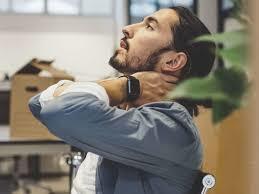
Our new normal includes malaise:
That unpleasant sensation, rumbling around in our psyche, that so many of us are feeling these days? It’s called malaise. The Oxford English Dictionary defines “malaise” as “a general feeling of discomfort, illness, or unease whose exact cause is difficult to identify.”
These days, many of us are walking around with a feeling of malaise without realizing it, but it’s evident in our poor sleep; in our tendencies to over-indulge in comfort food and alcohol; in how cranky and short-tempered we’ve been.
It’s safe to say that many of us have been feeling this vague sense of discomfort or unease for several months, without knowing what it is. It makes sense, though, because we’ve all been experiencing a lot of loss: loss of income, loss of security, loss of social connections, loss of loved ones, and loss of any sense of certainty about the future.
We feel overwhelmed and out of control:
And significantly, we’ve lost any sense of agency over our lives. Our usual feeling of having things under control has been replaced by a growing sense of uncertainty. Many of us have gone from feeling generally stable and confident to feeling mostly lost and insecure.
The social restrictions are getting to us; the financial strain is a huge burden; the uncertainty about our future is a heavy stone hanging from our neck.
The fact is that Covod-19 isn’t going away any time soon. The second wave is here and the only question is how bad it will be. We’ve only just begun to recover – emotionally, physically and financially – from the first wave and now we’re all bracing for more bad news.
Not surprisingly, our rates of stress, depression and anxiety are at an all-time high, but even for those of us who aren’t experiencing actual mental health problems, there’s still that nagging sense of malaise.
Parents are worrying about the fate of their children; workers are concerned about how safe they are at their jobs; singles are coping with profound feelings of isolation while at the same time trying to navigate dating during a pandemic and divorce rates are going through the roof as long-term couples are breaking apart after months of too much togetherness.
The new normal isn’t easy:
The new normal is not easy to get used to. Many have lost loved ones to Covid and are still grieving. Many have fallen ill and a number of these are still reeling, with lingering symptoms months after supposedly recovering. Many are terrified of getting sick or of a loved one succumbing to the disease.
Entrepreneurs are losing businesses they’ve spent years building up; people are losing their jobs, their medical insurance, their savings and their homes. For millions, it’s an ongoing financial catastrophe.
And what’s more distressing is that we don’t know how long the pandemic will last or how things will unfold. We don’t know when life will go back to normal, or if it ever really will. Will a vaccine be available any time soon? Will it be safe, effective? Will it really prevent us from catching Covid? Will the people in our community be willing to take it? All these questions add to our unease.
We can’t come together to comfort one-another:
In the past, when faced with major crises, people would band together to support one-another. We’d offer each-other comfort in the form of shared meals, town hall meetings and warm hugs. These things are discouraged nowadays. Many people are without much comfort.
So what can we do when malaise is the prevalent emotion and uncertainty is our current state of mind? We have to first of all, recognize what we’re feeling. We have to tune in to our emotions and ask ourselves how we’re doing.
I call it, “taking your emotional temperature,” and if you find that you’re running a fever, you need to stop and attend to your emotional needs.
Malaise on its own can lead us to make bad choices. We become more careless, irritable, impulsive or apathetic, and these attitudes carry over into our self-care at a time when good self-care is more important than ever. Dealing with our malaise, then, is not only important for our emotional well-being but for our physical health and safety.
People with malaise can become so despondent and irritable that they begin to ignore the realities of the pandemic and carry on as though everything were back to normal. Of course, this puts them and all the people in their lives at jeopardy. It’s a dangerous effect of living with malaise.
It’s important to recognize what’s bothering you:
Once you’ve acknowledged your own malaise, it’s a good idea to look at what specifically is bothering you. Is there grief that you still need to process? Is the constant uncertainty getting to you? Is your sense of isolation becoming more than you can bear? Whatever is bothering you, you need to deal with it if you want to feel better.
And if you find it difficult to do it on your own, you can talk to someone. Sometimes, even minor mental health issues can benefit from being looked at with the help of a skilled, compassionate professional. It’s likely that a short course of counseling will bring a lot of relief.
No-one is saying that we should all be walking around feeling cheerful these days. These aren’t cheerful times. But, if we put our attention onto our emotional well-being, we can let go of a lot of the malaise we’re feeling and have a better chance of handling this crisis in the best possible manner.
Sign up here for my free monthly wellness newsletter. I’m doing a special every-two-week series on Moving into Autumn with Good Self-Care, where you’ll learn simple tips for taking the best care of yourself and your loved ones this fall season.
And tune in to my ongoing YouTube video series on Coping With Covid.
September 13, 2020
Do Your Poor Lifestyle Choices Signal an Adjustment Disorder?
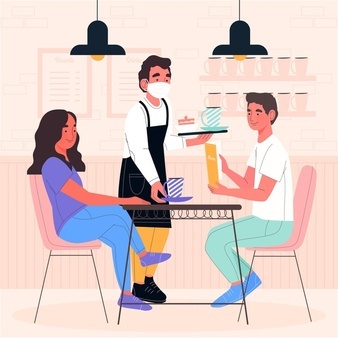
Everyone is moving indoors:
Summer is nearly over and the cooler autumn weather has begun to set in. Here in Ontario, many of us have started to move our activities indoors. But in this time of Covid-19, the shift indoors could also mean an increased risk of infection.
If we follow the public health guidelines and practice good self-care we can minimize that risk, but if we make poor health choices we risk becoming ill or infecting the people around us.
A recent study from the US Centers for Disease Control and Prevention found that people who had recently tested positive for Covid-19 were “twice as likely to have reported dining out in the 14 days before their diagnosis than those who tested negative.”
From this study, we can see that spending more time indoors could increase our risk of catching Covid-19, which is why it’s more important than ever to make the best possible health and lifestyle choices.

Not everyone is making good lifestyle choices:
Some of us are doing a good job of keeping ourselves and those around us safe and healthy. We’re making sure to wear a mask indoors, wash our hands frequently, stay 6 feet away from each-other and not congregate in large groups.
We’re doing the kinds of things that would boost our immunity to the virus – like eating healthy, getting regular exercise, prioritizing a good night’s sleep, practicing mindfulness meditation, avoiding drugs, and using alcohol in moderation.
Others are making seemingly irrational health choices: refusing to wear a mask, socializing with a wide group of acquaintances and attending huge gatherings – basically acting as though Covid-19 didn’t exist – and thereby risking their own health and the health of those with whom they live and work.
Many of these individuals are making poor lifestyle choices like eating junk food, drinking to excess, turning to drugs, and/or ignoring basic self-care practices like getting enough exercise and sleep.
All of this is concerning, because if there was any time to focus on being as healthy as possible it would be right now, so that we could minimize our chances of becoming seriously ill with Covid-19.
More people are turning to junk food than to health food:
A recent article in the Washington Post described an odd new pattern around grocery shopping these days. The article quotes the dean of Tufts University nutrition science school who says that “There are two different reactions to Covid — a small number who are getting health conscious and reacquainting themselves with real food, and a larger group that is going with comfort food.”
The numbers appear counter-intuitive. The larger group should be the one making the healthy food choices, not the one going for comfort food. It’s frightening that in a time when protecting our health is more crucial than ever, people are doing an even worse job at making healthy lifestyle choices.
It’s obvious that these poor choices are being driven by something other than enlightened self-interest. We’d like to think that our health choices would guided by common sense and the most up-to date, accurate information but sadly, this is often not the case.
As we move further into fall with more time spent indoors and an increased risk of catching Covid-19, it’s important to look at why so many people are making the kinds of choices that would increase their risk of serious illness.
Illogical behavior is motivated by unconscious processes:
When our behavior defies logic and common sense and actually puts us in harm’s way, it’s safe to assume that it’s being driven by unconscious psychological processes.
I suspect that what might be driving the poor lifestyle choices that many are making these days could be an undiagnosed “adjustment disorder.”
The Diagnostic and Statistical Manual of Mental Disorders, fifth edition (DSM-5) defines an adjustment disorder as “the development of emotional or behavioral symptoms in response to an identifiable stressor,” with “significant impairment in social, occupational or other important areas of functioning.”
Are many people suffering from an adjustment disorder?
An adjustment disorder can be seen as a milder version of Posttraumatic Stress Disorder – a severe condition brought on by the experience of extreme, often life-threatening trauma. When the stressor isn’t acutely life-threatening but is still overwhelming – such as Covid-19 – we’re more likely to develop an adjustment disorder rather than full-blown PTSD, but the symptoms can still affect us profoundly.
In fact, the symptoms of an adjustment disorder would fit in very well with the counter-intuitive self-care choices we’ve been seeing lately.
People with an adjustment disorder can be more reckless or careless. They can be apathetic and disinterested and exhibit a lot of avoidance and denial. They can be self-indulgent, self-negligent or compulsively self-soothing. Their behavior can be illogical, irrational and impulsive.
Adjustment disorder plus:
People who are experiencing an adjustment disorder can also have depressive symptoms, anxiety symptoms or both.
In the DSM-5, the diagnosis of adjustment disorder also can be associated:
a) with depressed mood: low mood, tearfulness, or feelings of hopelessness are predominant.
b) with anxiety: nervousness, worry, jitteriness, or separation anxiety are predominant.
c) with mixed anxiety and depressed mood: a combination of depression and anxiety is predominant.
I suspect that most of us have been traumatized to some degree by the Covid-19 pandemic and many may have developed an adjustment disorder or an adjustment disorder plus.
Few are talking about it, however, because the affected individuals aren’t being diagnosed. They’re not seeking mental health help because they don’t realize that they have a (diagnosable and treatable) mental health condition.
It’s conceivable that thousands of people are walking around with an adjustment disorder that is adversely affecting their lifestyle choices and possibly increasing their risk of becoming seriously ill with Covid-19.
We need to be aware of our own mental health:
It’s important, therefore, that people recognize what’s going on with their own mental health. If they’re turning more to comfort food lately; if they’re drinking more than usual; if they’re not paying close attention to the public health guidelines; if their emotions are driving their choices as opposed to their common sense, then they would most likely benefit from seeking out some mental health support.
An adjustment disorder is highly treatable with counseling and possibly also with medication. When your condition is treated, your behavior will be driven more by common sense and you’re more likely to start making better lifestyle choices, which is so important now that the fall season is approaching.
Sign up here for my free monthly wellness newsletter. I’m doing a special every-two-week series on Moving into Autumn with Good Self-Care, where you’ll learn simple tips for taking the best care of yourself and your loved ones this fall season.
And tune in to my new YouTube video series on Coping With Covid.
Do Your Poor Lifestyle Choices Signal an Undiagnosed Adjustment Disorder?
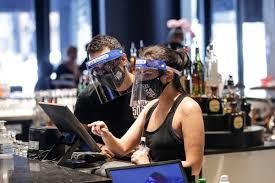
Everyone is moving indoors:
Summer is nearly over and the cooler autumn weather has begun to set in. Here in Ontario, many of us have started to move our activities indoors. But in this time of Covid-19, the shift indoors could also mean an increased risk of infection.
If we follow the public health guidelines and practice good self-care we can minimize that risk, but if we make poor health choices we risk becoming ill or infecting the people around us.
A recent study from the US Centers for Disease Control and Prevention found that people who had recently tested positive for Covid-19 were “twice as likely to have reported dining out in the 14 days before their diagnosis than those who tested negative.”
From this study, we can see that spending more time indoors could increase our risk of catching Covid-19, which is why it’s more important than ever to make the best possible health and lifestyle choices.
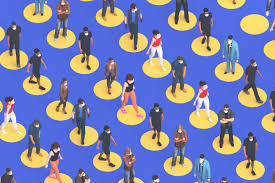
Not everyone is making good lifestyle choices:
Some of us are doing a good job of keeping ourselves and those around us safe and healthy. We’re making sure to wear a mask indoors, wash our hands frequently, stay 6 feet away from each-other and not congregate in large groups.
We’re doing the kinds of things that would boost our immunity to the virus – like eating healthy, getting regular exercise, prioritizing a good night’s sleep, practicing mindfulness meditation, avoiding drugs, and using alcohol in moderation.
Others are making seemingly irrational health choices: refusing to wear a mask, socializing with a wide group of acquaintances and attending huge gatherings – basically acting as though Covid-19 didn’t exist – and thereby risking their own health and the health of those with whom they live and work.
Many of these individuals are making poor lifestyle choices like eating junk food, drinking to excess, turning to drugs, and/or ignoring basic self-care practices like getting enough exercise and sleep.
All of this is concerning, because if there was any time to focus on being as healthy as possible it would be right now, so that we could minimize our chances of becoming seriously ill with Covid-19.
More people are turning to junk food than to health food:
A recent article in the Washington Post described an odd new pattern around grocery shopping these days. The article quotes the dean of Tufts University nutrition science school who says that “There are two different reactions to covid — a small number who are getting health conscious and reacquainting themselves with real food, and a larger group that is going with comfort food.”
The numbers appear counter-intuitive. The larger group should be the one making the healthy food choices, not the one going for comfort food. It’s frightening that in a time when protecting our health is more crucial than ever, people are doing an even worse job at making healthy lifestyle choices.
It’s obvious that these poor choices are being driven by something other than enlightened self-interest. We’d like to think that our health choices would guided by common sense and the most up-to date, accurate information but sadly, this is often not the case.
As we move further into fall with more time spent indoors and an increased risk of catching Covid-19, it’s important to look at why so many people are making the kinds of choices that would increase their risk of serious illness.
Illogical behavior is motivated by unconscious processes:
When our behavior defies logic and common sense and actually puts us in harm’s way, it’s safe to assume that it’s being driven by unconscious psychological processes.
I suspect that what might be driving the poor lifestyle choices that many are making these days could be an undiagnosed “adjustment disorder.”
The Diagnostic and Statistical Manual of Mental Disorders, fifth edition (DSM-5) defines an adjustment disorder as “the development of emotional or behavioral symptoms in response to an identifiable stressor,” with “significant impairment in social, occupational or other important areas of functioning.”
Are many people suffering from an adjustment disorder?
An adjustment disorder can be seen as a milder version of Posttraumatic Stress Disorder – a severe condition brought on by the experience of extreme, often life-threatening trauma. When the stressor isn’t acutely life-threatening but is still overwhelming – such as Covid-19 – we’re more likely to develop an adjustment disorder rather than full-blown PTSD, but the symptoms can still affect us profoundly.
In fact, the symptoms of an adjustment disorder would fit in very well with the counter-intuitive self-care choices we’ve been seeing lately.
People with an adjustment disorder can be more reckless or careless. They can be apathetic and disinterested and exhibit a lot of avoidance and denial. They can be self-indulgent, self-negligent or compulsively self-soothing. Their behavior can be illogical, irrational and impulsive.
I suspect that most of us have been traumatized to some degree by the Covid-19 pandemic and many may have developed an adjustment disorder. Few are talking about it, however, because the affected individuals aren’t being diagnosed. They’re not seeking mental health help because they don’t realize that they have a (diagnosable and treatable) mental health condition.
It’s conceivable that thousands of people are walking around with an adjustment disorder that is adversely affecting their lifestyle choices and possibly increasing their risk of becoming seriously ill with Covid-19.
We need to be aware of our own mental health:
It’s important, therefore, that people recognize what’s going on with their own mental health. If they’re turning more to comfort food lately; if they’re drinking more than usual; if they’re not paying close attention to the public health guidelines; if their emotions are driving their choices as opposed to their common sense, then they would most likely benefit from seeking out some mental health support.
An adjustment disorder is highly treatable with counseling and possibly also with medication. When your condition is treated, your behavior will be driven more by common sense and you’re more likely to start making better lifestyle choices, which is so important now that the fall season is approaching.
Sign up here for my free monthly wellness newsletter. I’m doing a special every-two-week series on Moving into Autumn with Good Self-Care, where you’ll learn simple tips for taking the best care of yourself and your loved ones this fall season.
And tune in to my new YouTube video series on Coping With Covid.
August 27, 2020
Back-to-School Anxiety? My 7 Coping Strategies for Parents and Teachers
As I read articles and watch the news these days, it’s clear that even as the new school year is beginning, parents and teachers are feeling ill-prepared. It’s a frightening situation and all the uncertainty swirling around is making it harder for parents and teachers to cope.
I thought it would be a good idea to speak directly to teachers and parents and to suggest a few things that you can do to cope with back-to school anxiety.
Here are my 7 strategies for parents and teachers to use right now:
1. Acknowledge your feelings. It’s important to tune in to what’s happening to you emotionally, so that you can take the best care of yourself and your loved ones. Recognize that many of your fears are real and well-founded and that you’re not being “hysterical” or “exaggerating” the problem. When you acknowledge your feelings, you are able to take the most appropriate action to care for yourself and your children.
2. Get the facts. In order to handle this incredibly stressful situation, you need to turn to the most reliable sources: your local public health officers. You’ll receive the most updated information that you can use to keep yourself and your children safe. When you’re armed with the facts, your actions are reality-based and the most appropriate for the situation.
3. Differentiate genuine concern from panic. It’s important to know the difference between being legitimately fearful of real dangers and freaking out from imagining worst-case scenarios.
It’s appropriate to be afraid of real dangers. It’s not helpful to panic over imaginary ones.
Find out what measures are in place at the school where you teach at or where your children attend. If the measures don’t seem appropriate, feel free to act on your concerns. If you’re freaking out, even though all the appropriate safety measures seem to be in place, then it’s time to work on calming yourself or consider reaching out for professional help and guidance to help you calm your fears.
4. React appropriately. You don’t want to under-react to genuine dangers or over-react to imaginary ones. You shouldn’t be in denial, talking yourself out of your real fears, but you shouldn’t get caught up in hysteria either, allowing the tiniest issue to get blown out of proportion.
Being too chill could put you and your children at risk. Being hysterical clouds your judgment and makes it impossible to make the good choices that will keep everyone safe.
There are parents and teachers who are feeling calm when they should be concerned and those who are freaking out when the situation is under control. You don’t want to be in either of these groups. It’s best to react appropriately to the reality of what you’re facing, not to your imaginary fears or your defense mechanism of denial.
5. Find your Zen. Try to remain in a calm yet prepared state. The more you breathe, relax and pay attention to the reality in front of you, the better prepared you are to be flexible and decisive in facing the challenges of back-to school during the pandemic.
6. Live in balance. Don’t let your guard down but don’t walk around in a fight-or-flight state. You don’t want to be overly confident, assuming that all the problems are solved as this could get you or your children into trouble. You also don’t want to be so paranoid that you’re making yourself sick with worry.
Living in balance enables you to have equanimity.
Equanimity is defined by the Merriam-Webster Dictionary as “evenness of mind especially under stress.”
7. Repeat these steps. Keep them going until the school term finishes. Then repeat the same steps each term. Even though you can’t control the Covid-19 pandemic, you are in charge of your own emotional responses and you can be emotionally prepared to keep yourself and your children emotionally well and physically safe.
Sign up here for my free monthly wellness newsletter. I’m doing a special every-two-week series on The Summer of Self-Care, where you’ll learn new tips for taking the best care of yourself and your loved ones this summer.
And tune in to my new YouTube video series on Coping With Covid.
August 22, 2020
7 Tips for Dealing With Uncertainty During the Pandemic
A life-changing pandemic:
These are unprecedented times. No-one could have imagined a global pandemic on this scale. All around the world, people’s lives have been immeasurably changed – some to a catastrophic degree.
People are losing their livelihoods and their lives. Families that have lost loved ones are in mourning. People have lost their jobs and are at risk of losing their homes. Small businesses are closing down; many never to reopen. It’s a truly devastating situation.
And in the middle of all this uncertainty, the new school season is upon us. Even in Canada, where the numbers have been staying fairly steady, many parents still aren’t feeling confident about sending their children back to school. In many parts of the US, parents are terrified.
People are frightened, angry and confused:
In the US, more than 5.5 million people are infected with the Coronavirus and more than 175,000 people have died. In hard-hit American communities, parents – and teachers – don’t know what to do, come school season.
A lot of people are angry about the situation and they’re taking out their frustration on their loved ones. The rates of domestic abuse are rising all over as people lash out at the most vulnerable in their families.
Some people are taking out their anger on strangers, assaulting people in public places for no good reason. It’s clear that they’re displacing their frustration onto innocent bystanders. It’s also clear that these attacks are utterly futile, as the perpetrators feel no sense of peace or relief, afterwards.
Some people are insisting that Covid-19 is a hoax perpetrated by political opponents. Unfortunately, many of these deniers are ignoring safety guidelines and then falling sick with Covid – some only realizing the truth when it’s too late.
Some people are turning to alcohol or drugs to self-soothe. Some are overeating. Of course, this will only temporarily dull the pain and it will create additional problems down the road.
Everywhere you go, almost everyone is anxious. Almost everyone is scared. No-one knows what to expect. How do you carry on with your life in the middle of all this uncertainty and confusion?
Control isn’t possible:
One thing you can’t do is control the situation. You can’t deny it and you can’t wish it away. You have to face things head on, because nothing else will work.
Most importantly, you have to acknowledge that you’re feeling stressed. It’s not a sign of weakness to occasionally feel scared, unsure or even overwhelmed, these days. It’s just part of being human.
Once you recognize that you’re struggling, the next thing to do is be kind to yourself. If you’re having a hard time for any reason, you need to cut yourself some slack and silence that inner critic in your mind.
Then, there are a number of simple things that you can do to feel better, even in the middle of all the craziness.
Here are my seven tips for dealing with the uncertainty during the pandemic:
Gratitude and appreciation: it’s always helpful, when things are hard, to remember what you do have and be grateful for it. Reminding yourself of what you appreciate in your life will provide you with a much-needed sense of balance.
Perspective: when it all starts feeling like it’s too much, it’s important to take a step back and see the big picture. If you don’t feel like you can do this on your own, go and listen to the experts – reputable journalists and scientists who’ll help you to put things into the proper perspective.
Mindfulness: when you’re feeling really scattered and out of control, you can take the time to breathe, get centered and tune in to your feelings and needs. You’ll find that it helps a lot.
Acceptance: as much as you might hate what’s going on in the world right now, you can’t make Covid disappear. You need to accept the reality of the situation and pay attention to the public health guidelines for keeping yourself and your loved ones safe. Denial could make a bad situation that much worse.
Good self-care: when you’re feeling stressed, you need to take the best possible care of yourself. Stress makes you miserable and it lowers your ability to fight infection. Good self-care decreases your stress. Make sure you get enough exercise, proper nutrition and good-quality sleep. It will help your body and your mind.
Talking to people: sometimes, you need to reach out to your loved ones or to a trained professional to talk about how you’re feeling. Having someone listen to you and understand what you’re going through is very comforting. Hearing wise words of advice is very helpful.
Treatment: if you start feeling like you really can’t cope, you might be experiencing clinical depression or an anxiety disorder. If you’ve tried all of the above and nothing has helped, you might need more in-depth treatment from a qualified health-care professional.
This pandemic isn’t going away any time soon. In the meantime, it’s essential that you take the best possible care of yourself and your loved ones. Try these seven tips and I’m sure you’ll start to feel better right away.
Sign up here for my free monthly wellness newsletter. I’m doing a special every-two-week series on The Summer of Self-Care, where you’ll learn new tips for taking the best care of yourself and your loved ones this summer.
And tune in to my new YouTube video series on Coping With Covid.
August 7, 2020
Tolerating the Uncertainty Around Back-to-School Decisions
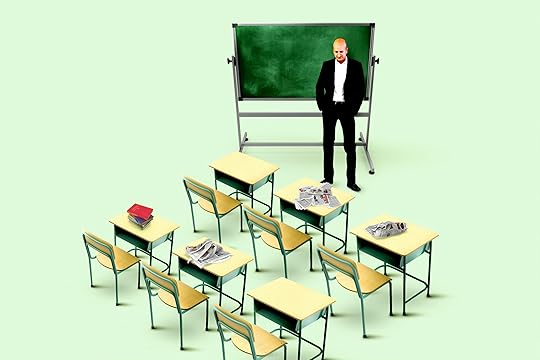
It’s back-to-school season:
It’s August, and school will be starting shortly. Parents everywhere are faced with a real dilemma: “Do I send my kids to school and risk them catching, and potentially spreading, Covid-19?” Or, “Do I keep my kids at home and risk being unable to earn a living?”
Parents are stuck between a rock and a hard place. Here in Ontario, public health figures are decrying the large class sizes in the provincial government’s back to school plan, and the government is doubling down to defend its position.
In the US, schools are planning to reopen across the country, even as the number of infected people edges toward five million and rates of infection in many states are at an all-time high. I can’t imagine what parents must be thinking when faced with these grim statistics but also needing to go to work.
Making impossible choices:
What can we do when we feel so helpless and out of control of our lives; when it sometimes seems like it’s a toss-up between our children’s safety and our ability to put food on the table and a roof over our heads? How do we make these seemingly impossible choices?
Of course, all we can do is our best. And we can remember that it’s impossible to predict the future. We aren’t clairvoyant, so we can’t know how our decisions are going to play out. It’s not our fault if things don’t go the way we hope. We can’t beat ourselves up for making the best choices we can in a situation that’s constantly evolving and unpredictable.
The need for self-compassion:
Self-compassion is so important now, because parents tend to blame themselves for bad outcomes, even when they’ve done nothing wrong. I’m all for taking responsibility, but there’s a difference between being irresponsible and being in a situation that’s beyond our control.
Parents need to be kind to themselves right now. It’s so challenging to have school-aged children and not to know what’s best for them under the circumstances. It’s clear that kids need to go to school. They need the structure, the socialization, and the entire in-person educational experience. But they also need to be safe. And their families need to be safe. Right now, there’s no perfect answer and no parent should be faulted, whatever decision they make.
The need for self-forgiveness:
Parents need to cultivate an attitude of self-forgiveness and go easy on themselves, whatever back-to-school decisions they make. They also need to forgive themselves if they experience a negative outcome. We’re all doing the best that we can in exceedingly challenging circumstances and parents need to let themselves off the hook because it’s not their fault if things go wrong.
Aside from self-compassion and self-forgiveness, another important emotional tool for dealing with the back-to-school conundrum is the ability to tolerate uncertainty. Parents can’t know if sending their kids to school will be a great thing or an unmitigated disaster. Parents can’t know if keeping their kids at home will work out the way they planned.
Tolerating the uncertainty:
Right now, everyone needs to work on tolerating the uncertainty. We can’t know what’s going to happen. We can’t know which decision is the best to make for our kids. We have to accept the lack of control and the inability to predict what’s around the bend. It’s not easy to tolerate uncertainty but it will help us to cope in these unprecedented times.
Tolerating uncertainty involves an element of surrender. We must face our vulnerability and accept that we can’t know the outcomes of our choices or control our children’s future.
To some extent, it’s a lesson in letting go that all parents need to learn. Eventually, every parent must realize that it’s impossible to keep their kids 100% safe, 100% of the time. It’s impossible to get our kids to make only good decisions, and it’s impossible to control the types of people they associate with. It’s also impossible to totally prevent our children from getting into an accident or getting sick.
We can’t bubble-wrap our kids:
Unless we want to bubble-wrap our kids and deprive them of a normal existence, we have to allow them to be free and sometimes to get hurt, as hard as that must be. All that we can do is try our best to teach them to be strong, courageous, smart and resilient, and then hope for the best possible outcome.
This lesson on letting go is only heightened during the Covid-19 pandemic. Parents everywhere must do the best they can for their kids, not having a clue how things will play out. Tolerating the uncertainty will make the difference for us between being able to keep on functioning and falling into overwhelming frustration, anxiety or despair.
No parent is alone:
One thing to remember is that today, no parent is alone. Every parent around the world is going through exactly the same situation. Every parent on every continent is trying to figure out the best solution to their children’s education. Parents everywhere can reach out and communicate with one-other on-line for support, guidance and perspective.
Around the world, very few parents have the luxury of being able to keep their children at home with no financial consequences to themselves. The vast majority of parents around the world have few options. It’s either send the kids to school so that they can get back to work, or keep the kids at home and compromise their income.
Getting our governments to do the right thing:
One thing that parents can do is lobby their local governments to ensure the safety of their children at school. Parents can insist that their boards of education follow the best, most up-to-date public health guidelines and not put the children at any unnecessary risk. There’s an election coming up in the US in November 2020. Parents can vote to elect the person and the party who they feel would best protect their children and their families in the months to come.
And in the meantime, parents can work on having more self-compassion, more self-forgiveness and a lot more tolerance for the uncertainty of these strange new times.
Sign up here for my free monthly wellness newsletter. I’m doing a special every-two-week series on The Summer of Self-Care, where you’ll learn new tips for taking the best care of yourself this summer.
And tune in to my new YouTube video series on Coping With Covid.
August 1, 2020
Tell the Young People: It’s Not the Time to Party
The rising number of Covid-19 infections in young people:
When we think about the rising numbers of Covid-19 infections across Canada and the United States, one thing that’s clear is that young people are making up the majority of new cases. And it’s not surprising why.
Young people across the globe are acting out against the restrictions imposed on them over the past few months and they’re partying like there’s no tomorrow. Sadly, if they keep it up, there could very well be no tomorrow for them, their friends or their families.
Young people are not invincible:
Young people think they’re invincible but they’re becoming infected at an alarming rate, with a greater increase in new cases in the 19-39 year-old age group. And many of these otherwise healthy young people who have no underlying health conditions are dying of the disease. Many are dying of strokes, and some are dying suddenly after seeming to have mild cases of the disease.
Rebecca Wrixon, a healthy 44 year old woman, caught Covid-19 and initially she had minimal symptoms until the virus attacked her nervous system, paralyzing half her body, making her unable to see or to speak, and almost killing her before she fortunately recovered.
Politicians plead with the youth to stop partying:
Many politicians in Canada and the US have been begging the young people in their communities to stop partying and to go back to social distancing, but these pleas have been falling on deaf ears. Just the other day a Brampton, Ontario house party was held with over 200 people in attendance, causing the Premier of Ontario to call them “yahoos.”
In Florida, young people have continued to flock to the beaches and to the bars, defying the public health guidelines. This behavior has been replicated in other parts of the US, in Canada and in the United Kingdom.
In the Hamptons, just outside of New York City, a fundraiser attracted an enormous crowd, drawing the ire of Governor Cuomo. It seems like anywhere you go the youth is in revolt against restrictions to mass congregating.
Young people are built to have bad judgment and impulsiveness:
On the one hand, I can understand why young people are ignoring the rules. I remember being in my 20’s and making some pretty stupid decisions. I simply didn’t register danger in the way I do now as a more mature adult. If I were in my 20’s right now I wonder if I’d be making decisions that were any better than those being made by the youth of today.
Being young is a time of extremes, and young people are built to have poor judgment, minimal insight and a whole lot of impulsiveness. Being young means not necessarily seeing where your actions might lead. Many young people live for today and have difficulty contemplating how their current choices might affect their lives, and the lives of those around them, tomorrow.
The difference, though, between back when I was young and what’s happening today, is that Covid-19 is everywhere and to date, it has killed almost 700,000 people around the world; with over 150,000 of them being in the US. Young people, despite their live-for-today attitudes and their beliefs of being impervious, are not immune.
Young people can get very sick with Covid-19:
Even those mildly affected can go on to develop chronic conditions characterized by severe pain, fatigue and shortness of breath. The actress and writer Lena Dunham recently chronicled her prolonged and terrifying experience of being infected with Covid-19.
And for those young people who become infected but manage not to get sick, this doesn’t mean that all is well. We’ve seen numerous cases of asymptomatic young people who’ve gone on to infect their parents and grandparents with Covid. These young people are defying their elders, going to parties and bars, and then spreading the infection to their more vulnerable family members.
Schools are reopening right now in many parts of the US. In Canada, it’s only a month away. If young people continue with this reckless behavior, I fear that the numbers will continue to rise and the safety of our children, our teachers, the school staff and the families of all concerned are going to be at a much greater risk.
Young people can be selfish and clueless:
One strong characteristic of young people is selfishness. Not all of them are this way, to be sure, but the brains of young people are still forming and many of them don’t recognize the impact of their behavior on others.
One 21 year-old Florida man defied his parents’ wishes and went out partying, coming home to infect his entire family and putting his 42 year-old father in hospital and on a ventilator. I’m sure this wasn’t the young man’s intention, but he clearly was thinking only of himself when he decided to ignore his parents’ wishes.
It’s frightening to think that the safety and welfare of our society is in the hands of selfish, unaware, impulsive young people who can’t envision recognizing the consequences of their actions – to themselves or to others.
It’s a real dilemma. We don’t want to become an authoritarian society that imposes harsh penalties on our youth for something as natural to them as partying, but on the other hand, how do we contain the spread of Covid-19 when the youth of today is behaving so recklessly?
Something has to be done:
I’ll leave that to the politicians and the public health experts. What I will say is that something does have to be done. We can’t turn a blind eye to this behavior because it’s becoming a real menace to the health of our society and to the reopening of our schools and our economy.
There’s an old song by the Beastie Boys that goes, “You gotta fight for your right to party.” Under any other set of circumstances I’d be right behind that, but when partying today is responsible for causing so much harm, maybe the lyrics need to be temporarily changed to “You gotta wait for the right time to party.”
Young people need to be reminded that life will get back to normal sometime soon, and that they’re only delaying this return to normalcy with their irresponsible behavior.
If we can convince the young people to be a little bit patient and to just hold off on the partying for a little while longer, the world can slowly get back to normal and a whole lot of lives can be spared.
Sign up here for my free monthly wellness newsletter. I’m doing a special every-two-week series on The Summer of Self-Care, where you’ll learn new tips for taking the best care of yourself this summer.
And tune in to my new YouTube video series on Coping With Covid.
Marcia Sirota's Blog
- Marcia Sirota's profile
- 1 follower


